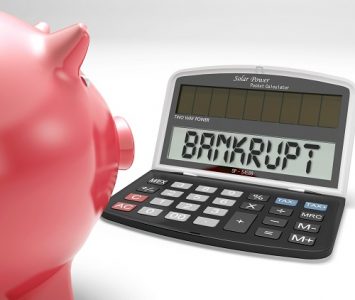Bankruptcy
Filed under: bankruptcy

Bankruptcy is a lawful procedure through which individuals ask the courts for help with their debts. Bankruptcy is dealt with in government courts, and rules are laid out in the U.S. Bankruptcy Code. There are several chapters of bankruptcy for individual filers. Chapter 7 is the quickest and easiest form of bankruptcy. Chapter 13 allows you to keep all of your assets and make a court-approved repayment plan over a few years. And if you are a family farmer, you may be able to file Chapter 12 bankruptcy (which is much like Chapter 13).
Protection From Creditors
Bankruptcy allows for the debtor to receive protection from their creditors and giving what money they can to satisfy their creditors somewhat. When you complete your bankruptcy case, all qualifying debt will be eliminated.
When you seek financial protection, the court gives a request called an “automatic stay” that denies creditors from reaching you. The stay can prevent your creditors from calling to collect on the debt, your home from being sold, stop payroll deductions for debt, and liens will stop, and your vehicle will be safe from repossession until a resolution is formed.
Discharge
Most bankruptcies receive a successful discharge from the court. Reasons for case dismissals could be due to a debtor attempting to hide assets or misrepresent their financial situation. If you are found guilty of fraud, your case will be dismissed, and you could potentially go to jail.
Regardless of whether bankruptcy is the correct answer for your money-related issues, it will rely upon your circumstance, the sort of obligations you have, and how much property you have to secure.
If you are in financial trouble, contact a Hidalgo County bankruptcy attorney today.
Disclaimer: This blog post is for general informational purposes only and does not constitute legal advice. Your specific situation may vary. Please consult with an attorney at Baker & Associates to discuss your particular case.

